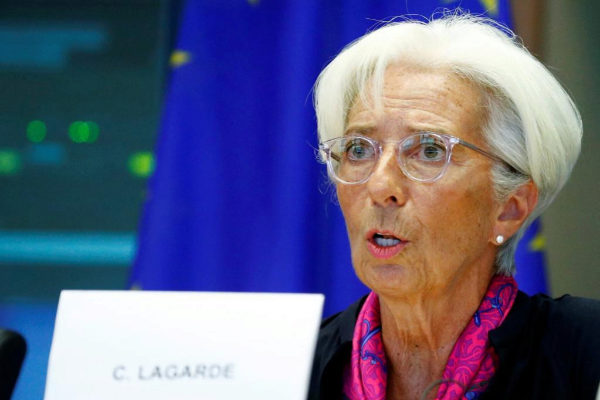Not a day goes by without bad news. This Friday, for example, the contraction of the German industrial sector was confirmed, as was the slowdown in job creation in the United States. Of course: nothing comparable to the destruction of employment in Spain after the summer season. If there really is a recession, no one can say that it was not seen coming. Even in the event that there is simply a slowdown, and not a crisis - as Federal Reserve President Jay Powell argued yesterday - this will be the most announced slowdown in history.
Paradoxically, the response of governments is rather non-existent. Either by political paralysis (in countries like Spain, USA), or by political will, the authorities seem to have waited for the slowdown to end by blaming the trade war between the United States and China. That is something that, in the first place, will not happen. And that, in addition, even if it happened, it might not be enough to change the cycle. The future president of the ECB, Christine Lagarde , has already asked for more investment from governments. But it doesn't seem like he found a receptive audience.
If the problem is considerable for industrialized countries, for those in the process of development it is much greater. The question is simple: in the world, today, there is money left over. But that money is not, to a large extent, destined for the so-called real economy, but only for the financial one. That capital could be key to increasing the potential growth of less advanced countries. The problem is that it is not destined for that purpose.
Perhaps the clearest example of this is a region relatively close to Spain: Latin America. As explained by the vice president of countries of the Inter-American Development Bank (IDB), Alexandre Meira da Rosa , "Latin America risks losing a historic opportunity." The figures behind that phrase are conclusive: that region is investing in infrastructure around 75,000 million dollars (68,000 million euros) but, to reduce its backlog in that area, it should allocate double for at least a decade.
On top of that, if the crisis is confirmed, international capital will be even more reluctant to enter those emerging markets that, as Azevedo recalled at the PPP Americas conference, are now building the institutional and technical capacity to tender, structure and monitor investments. in public works.
It is tempting to think that China is going to take care of filling that void. But both the plans and the execution of the so-called 'Belt and Road' - China's vast network of ports and transport infrastructure to connect with the European market - have already made it clear that this is not the panacea. On the one hand, Beijing often imposes leonine conditions on the countries in which it invests; on the other, as has been shown on the famous highway that China has financed in Montenegro, the quality of its infrastructure often leaves much to be desired.
If the slowdown in activity in developed countries continues, even more capital will go to public debt, and less to activities that generate employment and increase potential growth. Azevedo's warning was limited to Latin America. But it could be applied to most of the middle and low income countries. And, also, to the industrialized. Crises are not bad just because of what they destroy; also for what they don't let do. And infrastructure is a key element to reduce the growth and wealth differentials between countries and regions.
According to the criteria of The Trust Project
Know more- China
- Spain
- U.S
- Europe
- Federal Reserve
- Christine Lagarde
- European Central Bank
- World
- economy
- communication
- Latin America
Grandstand Keys to a bad situation
Trade war and Europe in the back
Impression A very vulnerable economy

